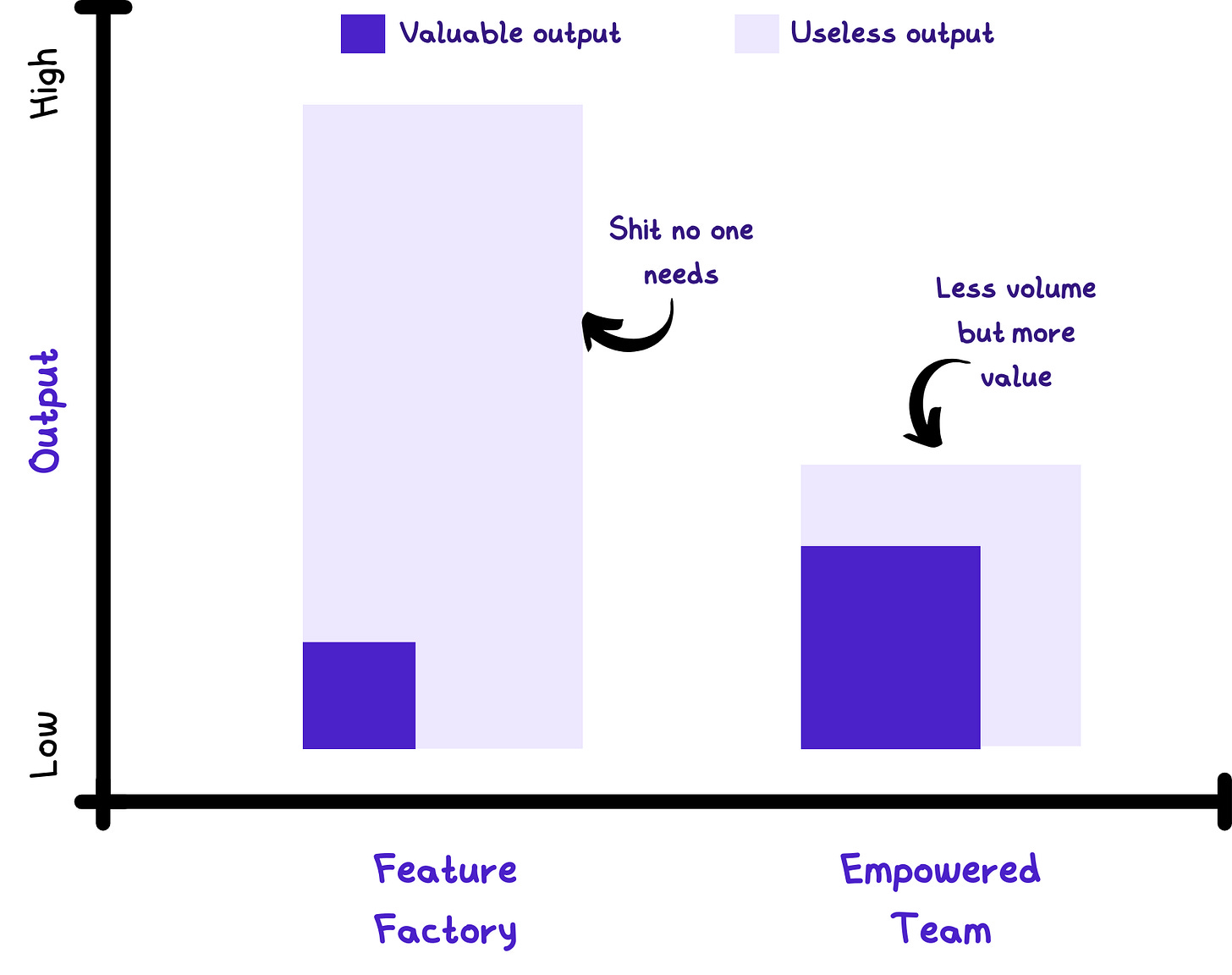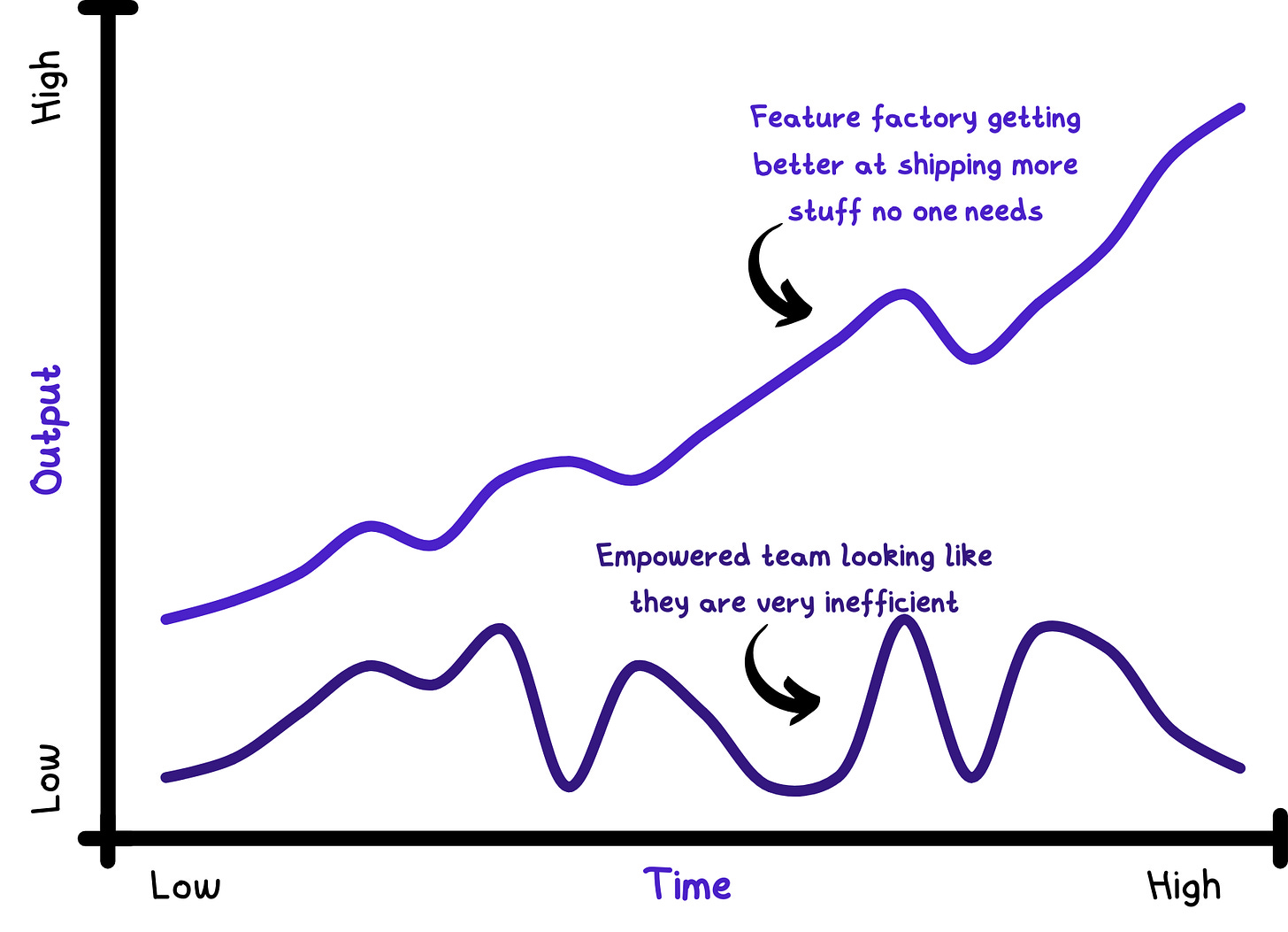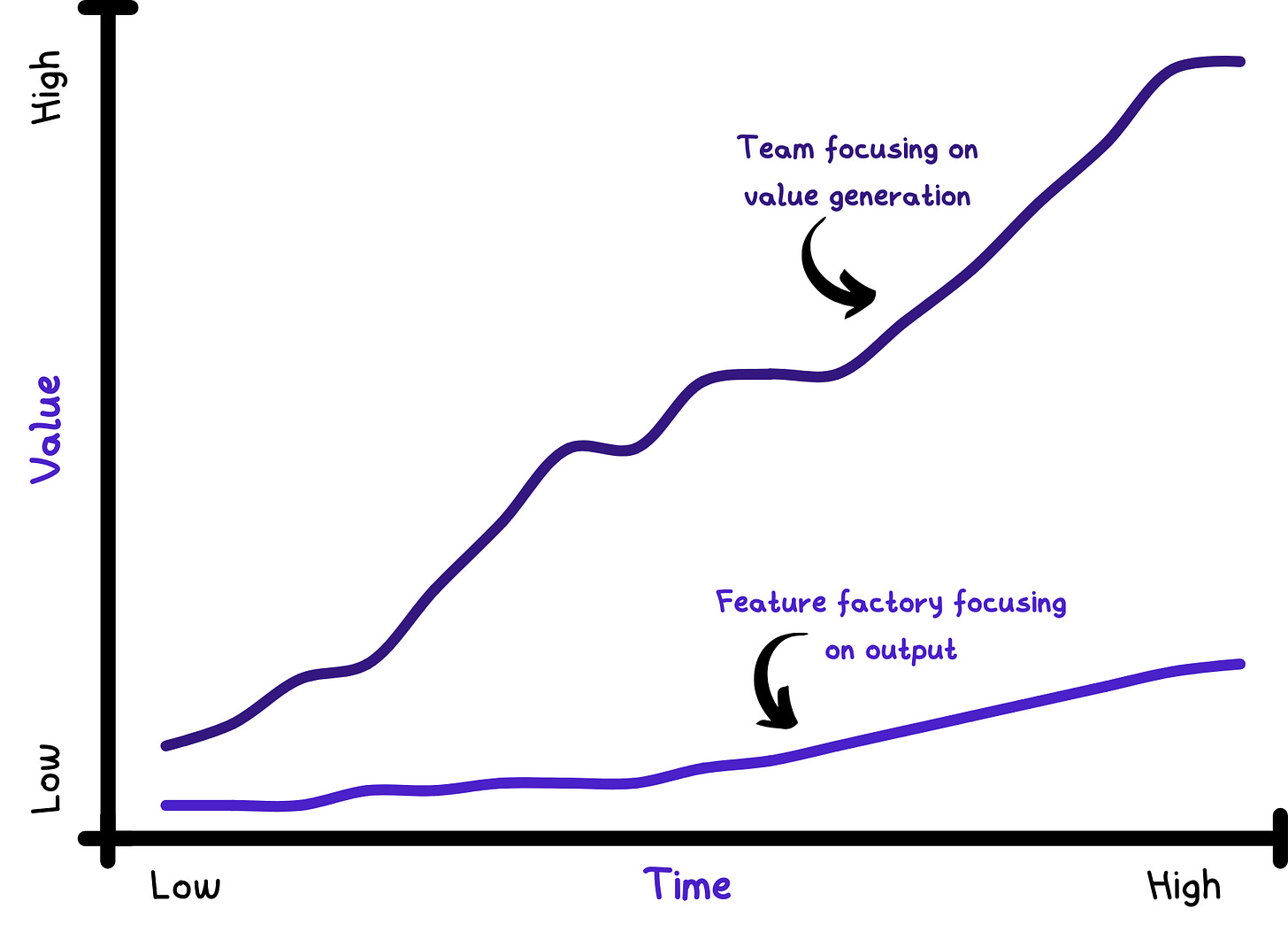This article in the VERSUS Series was the one I was most looking forward to writing. Focusing on outcomes over outputs is something I not only truly believe in, but have seen to have a transformational impact on software companies. If you've ever felt like your team was producing features and products no one truly needs and you are working without a clear sense of purpose, this one’s for you.
Understanding Output and Outcome
Output is what you create as an individual or a team, the tangible product of your efforts. Think designs sketched, lines of code written, features developed, and tasks completed. It's all about WHAT you do. The best thing about output is; that it can be measured and tracked without effort, which makes it very appealing to measure.
Outcome, on the other hand, is what effect the things produced have. It answers the WHY behind each design sketched, line of code written, feature developed, and task completed. The worst thing about outcome is that it’s tough to measure. Has our sales process improved or does our product sell better because of the change made in the product? Is it because our CS team has been much nicer lately or has the feature release reduced churn rates? Yet outcomes are about creating real value, not just stuff, and that is much more important to measure.
Why Measuring Output is a Terrible Idea for Product Teams
Imagine this: Your team has been incredibly productive. You have just finished a set of sprints where you have shipped more than anyone else has ever done in your company. In addition, you just successfully launched a new flagship feature everyone anticipated. Also, you have already created all the specs and designs for the next project. On paper, productivity is through the roof.
Fast forward three months, you have delivered the next project ahead of schedule and dare to look into how the last project did. User engagement never happened, revenue did not increase, and churn only increased because your product got more complicated without significant additional value. What went wrong?
Focusing on output can lead to building shit no one needs. It’s like being super efficient at climbing ladders, only to find they’re leaning against the wrong wall. When teams don't align their efforts with real-world impacts, they risk becoming feature factories that churn out products lacking value to the customer, and viability for their business.
Why Measuring Outcome Usually Fails
Now Imagine this: Your team has a problem to solve or a business goal to reach. After one month you are still experimenting with ideas and have not shipped anything to customers. Leadership starts to get nervous, all these precious dollars spent on PM, Desing & Engineering salaries are just going to waste. They could be building shiny new things and all they do is create prototypes no customer ever sees.
They usually start asking the PM questions like: “How are you going to improve the metric?” or “What features do you plan to build to get things going?”
Seems innocent right, the issue is if the answers are: “I don’t know what we will deliver”, or “We have not yet figured out how to improve the metric”. Leadership often jumps back to measuring outputs faster than you can imagine. It’s so easy to say: “We are doing a great job” if all you need to measure is if devs are creating enough new code. Who cares if you delete that code in 12 months because no one uses that feature anyway, right? … RIGHT?
The real Challenge
So, why is focusing on outcomes so tricky? It's because it's hard to specify ahead of time what outcome should be reached and once started, it’s hard to see immediate results. Unlike output, you can't just check off items on a list. Outcomes take time to understand and require patience and a deeper look. It is hard for both leaders to set the right goals and for the teams to show progress while working on it.
However, measuring outcomes is the only way to ensure your team's work truly matters. It's about impact, not just activity. It's about making sure the ladder is against the right wall, and not just climbing it fast.
How to Fix This
First, stop asking the wrong questions.
Stop asking: How many story points have we delivered this sprint?
Stop asking: Why is the spec not yet complete?
Stop asking: When will this be delivered to customers?
All of the questions (amongst many) lead to incentivizing a focus on output. Stop asking these questions now, and focusing on outcomes will be much simpler. And I don’t mean just act towards others that you are focusing at outcomes while checking sprint velocities on a dashboard by yourself.
Start asking the right questions. Instead of asking how many features we can develop, ask how these features will change user behavior. Instead of focusing on how much code we can write, let's find out if that code can generate new value for customers. This shift in questioning drives a shift in action.
It's also important to set clear goals. These goals should be tied not to the number of tasks completed, or a feature delivered by date x, but to the real improvements seen by users and the business. Set goals that matter and then measure how well your work meets these goals.
Generate x revenue through upgrades until date y. (The team has to figure out how to create more value in a specific pricing tier)
Decrease the churn rate in “new customers” by date x. (The team has to figure out why customers churn in the first few weeks of usage and fix that)
To succeed, the whole team needs to buy into this mindset. This means everyone from leadership to engineers must value outcomes over outputs. When this happens, teams stop being just busy and start being effective. They make things people want and need. They create products that bring value to your business and customers.
Conclusion
In conclusion, don't fall into the trap of measuring output. It might look good on paper but it doesn't bring real success. Focus on outcomes. Yes, it's harder and yes, it takes longer. But it's the only way to ensure your work makes a difference. And isn't that why it is done in the first place?
Feel free to share this newsletter with your colleagues. Sometimes, a little shift in perspective is all it takes to transform our efforts from busy to impactful. Happy creating and even happier impact-making!
VERSUS Series
The VERSUS series is a set of 8 newsletter articles (2 per week) that answer questions PMs ask themselves all the time. Check out the other articles below!







